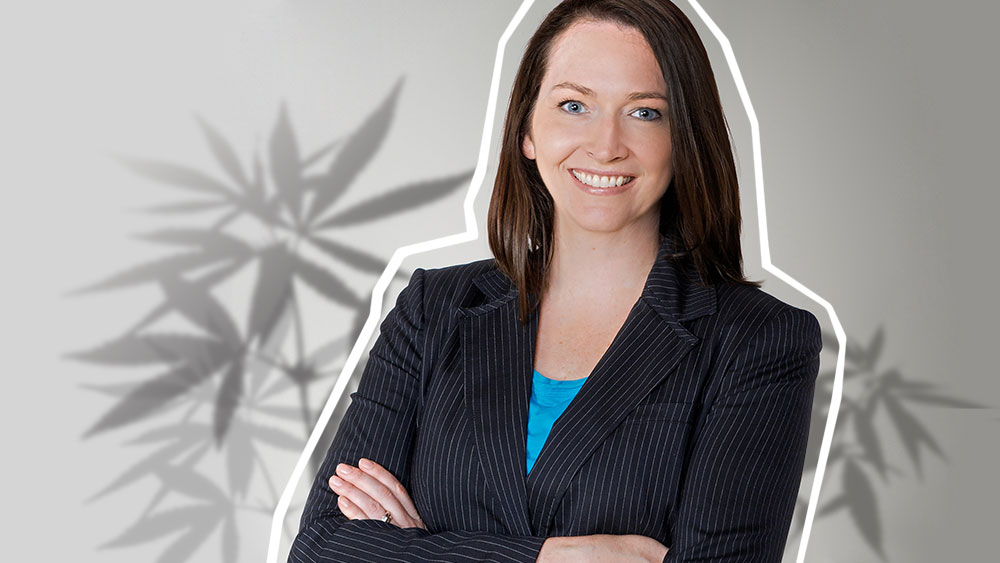Today, we’re discussing some of the realities and misconceptions about cannabis legalization with Trina Fraser, one of the leading lawyers in the Canadian cannabis industry.
Two weeks have passed since cannabis got legalized in Canada, and people are not thrilled. Not one bit.
Sure, it’s nice that cannabis is legal, but what good is legal cannabis if you can’t access it. Stores sold out what they had in stocks in a matter of days, sometimes hours.
The OCS had over 150,000 orders in the first day and people are still waiting on the cannabis they ordered more than 10 days ago.
Also, people have lots of questions. What happens if you get caught with weed? Do you need to show a receipt?
What about homemade edibles? Are you even allowed to make food and drinks with cannabis?
To answer that, and a few other questions today we have Trina Fraser from Brazeau Seller law firm.
Trina was one of the leading activist in the fight for legalizing cannabis. Now that it’s legal, she’s on the frontier of the industry, helping to make it better.
Alex: What do you think of the way the cannabis system is being implemented?
Trina: I think it’s a work in progress. Leading up to October 17th, we knew this would happen. I warned people and nobody was naive enough to think this would go without a hitch.
We know we don’t have a lot of product variety. We knew we won’t have enough storefronts to meet the demand. We knew there was going to be a supply shortage. We knew all these things were gonna happen.
One thing that worries me the most is that the shortage is starting to spill on the medical side. That’s a big problem. If anything must be immediately addressed this is that thing.
Alex: Do you think something else could have been done? Should the federal government have given provinces more time?
Trina: No, I don’t think anything in the adult use side should have been done differently. I think its a bunch of other factors that are causing pressure on the medical system. We have to make sure now that producers are able to give priority to supplying the medical market. That needs to happen.
Alex: Right, perhaps the lawmakers should have required them to put down a specific number of what they’ve dedicated to the medical market, and what they’ve dedicated to the adult market. And then they wouldn’t be allowed legally to cross that number.
Alex: Justin Trudeau has promised pardons for people that have a simple possession on their records. When do you think this will happen?
Trina: So, there’s nothing stopping people with cannabis convictions which have had the necessary period of time pass from applying for a pardon now.
They’re not creating anything new. You’re still going to have to apply for it. It’s not going to be an automatic blanket pardon.
Individuals are going to have to apply and seek for pardons, just like they can now. The only difference is you don’t have that waiting period and you don’t have to pay the fee attached.
Alex: Which marijuana-related offense will be most common now, aside from a DWI?
Trina: That’s a great question. That’s going to depend on the attitude of the law enforcement agencies.
You know, if they find someone on the street that has a couple of joints in their pocket, how far are they going to take that?
How far are they going to go in trying to determine if that is legal or illicit cannabis?
We could still see lots of charges for possession of illicit cannabis. But, I honestly don’t know how much appetite is law enforcement going to have.
Soon you’ll be able to say “Oh well I grew this from the four plants that I have at home,” and what are the cops going to do then?
Are they going to search your house? Are they going to do genetic testing on the cannabis to see if its the same thing you’re growing home? It gets into ridiculous territory.
Alex: What do you think the lawmakers should have included that they left out?
Trina: I definitely think we should have seen pharmacy sales of medical cannabis as a part of the roll-out. I think that’s a really big gap in the medical framework.
Also, I would like to see a lot more clear language in regards to security clearances. There is a great deal of discretion built in the process of getting a security clearance. It creates uncertainty.
In essence, they should have made it clear that if you participated in illegal activities before, that won’t exclude you from participating in the legal market. I advocated for that to be much more explicitly phrased.
I mean just look at the US. In some places, they give preferential treatment to prior market participants. They actually create incentives for illicit market participants to apply.
Alex: Edibles and infused drinks got delayed. But, what happens if you get caught with homemade edibles?
Trina: Oh that’s fine, you’re allowed to take your cannabis in whichever way you like. As long as you buy it legally or grow it legally you can cook it, bake it, put it in a stew…
It’s the commercial production and sales of edibles and infused drinks that’s not allowed yet.
Alex: Is the bar to enter the industry set too high at the moment?
Trina: I think it’s a bit early for me to say. We need to see first how these micro-licenses play out. I wanna see some people go through that process.
The question is really how long it takes to get approved, and how much are these people having to spend to get the licenses.
I think that creating these micro categories certainly helped lower security thresholds you’ll have to meet. But, we still have to see how it translates to opportunities for participating in the market.
Alex: How big are legal fees to enter the industry as a small business?
Trina: Well, legal fees are just a part of the costs really. You need a facility and you are going to have to have someone who’s going to develop that facility.
Then there’s security and compliance with the law which are also a part of the costs.
But, again, we don’t know those things yet because nobody got approved yet.
Alex: What are the biggest barriers to enter the industry?
Trina: I think it’s going to be a combination of several things. I’ve heard complaints about the cost of everything required to do to get a license.
I’ve heard complaints about complexity and the ongoing scrutiny in reporting, regulation, and everything else that you’d be subject to.
But, that’s the nature of the beast. We’re in a highly regulated industry, that’s a pill you’re going to have to swallow.
Hopefully, we’ll soon hear stores of people getting licensed and setting an example.
Alex: In what ways could the Conservatives change the cannabis industry if they win the upcoming election?
Trina: I’m not quite sure, I’ve been nose-deep buried in work so far.
I don’t think they can further regulate production, packaging, labeling, and cultivation more than we already have. But I don’t think they have the appetite to ease up on anything either.
So, to be honest, I don’t know really. I’m sure they’ll announce closer to the election what it is they’re planning on doing.
Alex: What do you think of the growing ban in Quebec and Manitoba? Are we going to see a court battle?
Trina: I suspect someone in those provinces is going to want to legally challenge them.
Then, there will have to be an analysis in court to determine whether those provincial bans are within the jurisdiction of the province. We already know that the position of the federal government is that it’s not.
So, we’ll have to see if the court agrees that complete prohibition on cultivation exceeds what provinces are allowed to do.
Alex: Right, but don’t you think that banning home growing would be a decent way to combat the black market? You’d steer more people towards the system implemented in the provinces.
Trina: Well, no. I think the finding of the Task Force was that you have to allow home growing in order to be able to combat the black market.
That’s a good call for people who are financially not able to get medical cannabis or buy recreational.
I was surprised they allowed it, just from a practical perspective. I thought that the fear would be exactly that – that home growing would be used as a guise for black market operations.






